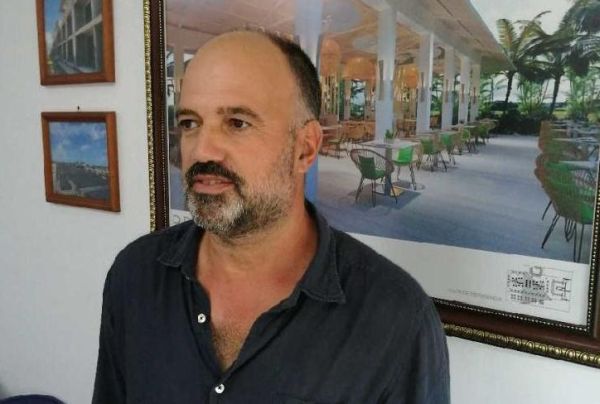
(Photo: Courtesy of the interviewee).
Nobody can tell Italian Emilio Artioli made up stories about Cuba. He knows very well that in this world there are plenty of media and profiles on social networks that rave at the reality of the island, even more during current pandemic times.
Despite that, he decided to return to Trinidad, although his loved ones and friends there in Veneto and Lombardy implored him to desist from returning to his work in the construction of the Melia Trinidad Hotel, on that piece of land washed by the Caribbean Sea and known as the Ancon peninsula.
So, on March 24, the technical director of the Trinidad Constructions International Economic Association (AEI, in Spanish) went down the steps of the plane at Havana’s José Martí International Airport, to then spend a 14 day-quarantine in an isolation facility by disposition of the Cuban government.
As soon as he set foot on the ground that Tuesday morning, his gratitude story started. Upon arrival at the airport, he observed an “impeccable organization” which included the rigorous medical check-up, the guarantee of food for all passengers on the flight and the trip by taxi or bus to the destination provinces with “the utmost observance of the rules to avoid coronavirus infection”, said Artioli.
During his taxi trip to Sancti Spíritus, Artoli must have thought of his family, of his own country living badly because of the pandemic. Once in the province, everything went like clockwork: first he was taken to the Camilo Cienfuegos Provincial General Hospital for the verification of his vitals and later on to Rancho Hatuey Villa, chosen as a quarantine center for foreigners.
After a few days, Emilio had nothing to say but compliments: “I felt at home at all times thanks to the kindness and courtesy of the Cuban people”. He also praised the professionalism of the nurse, the doctor, the waitress, and the hotel manager. “In times like that, one needs the word not only from a professional, but from a friend, and I found it there”, said the Italian worker, who had to spend an extra 14-day isolation in another institution, according to protocols.
Because he was not blindfolded, Artioli recognizes that “Cuba, despite not being a rich country, has put all the necessary resources to get out of the situation created by the coronavirus better than wealthy nations”.
He regrets the unfortunate episodes occurred due to COVID-19 in Italy, where two Cuban medical brigades fight against the disease in Crema, Lombardy, and in Turin, Piedmont, before the thankful gaze of Emilio and his fellow citizens. “That gesture is highly appreciated by Italians”, he affirms.
Already back to his duties in the Melia Trinidad Hotel, he said not to be surprised by the solidarity of the Caribbean island: “I worked a long time in Africa, and in every place I was, I always found doctors and other professionals from Cuba”.
Nobody can tell Artioli made up stories about that because he experienced it himself during his quarantine days in Rancho Hatuey, where the health personnel practically became his bodyguards. On the other hand, his colleagues from the AEI, TosCuba and TOMA Spa companies were always looking after him from the distance.
In times of this pandemic, which has turned the planet into an immense tomb, there is always those who try to discredit the battle of the Cuban authorities against the disease, with resonance in the media and social networks, and it is then when Emilio turns to the saying: A falling tree makes more noise than a growing forest. “With my gratitude, I want to make the silence of the growing forest be felt
 Escambray ENGLISH EDITION
Escambray ENGLISH EDITION





Escambray reserves the right to publish comments.